Are you familiar with feeling not only physically bad after a night of drinking but also anxious, guilty, and worried? You are not alone. "Hangxiety," a terrible mix of hangover symptoms and increased anxiety, can really make you unable to do anything. Do not worry, though. You can tame hangxiety if you know where it comes from and use smart strategies.
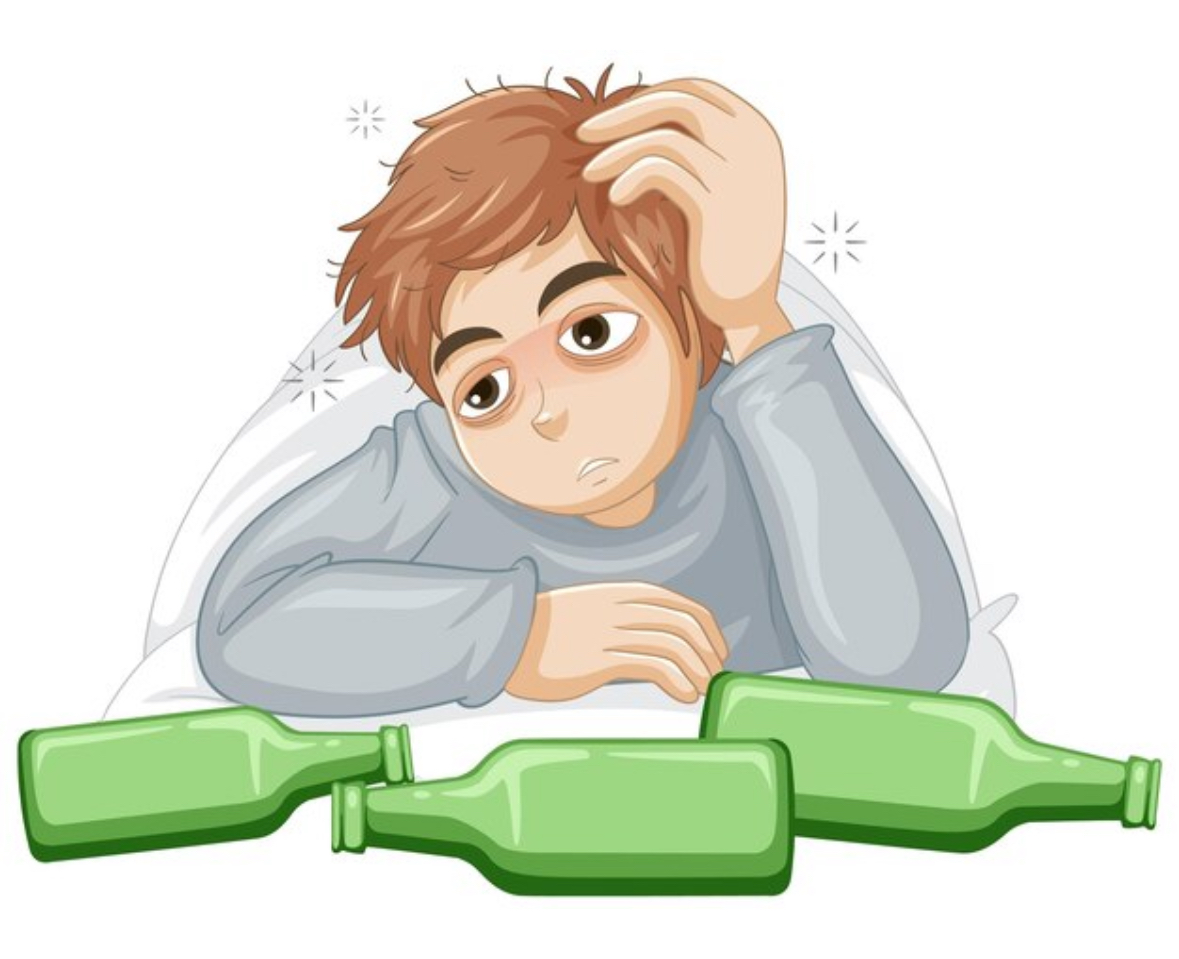
The Nature of Hangxiety: What is Hangxiety and Why Does It Happen?
Combining two bad effects of drinking too much alcohol, a hangover and anxiety, is what the word "hangxiety" means. Too much booze consumption can cause headaches, nausea, and dehydration. Regardless, why stress? This depends on how alcohol alters the chemicals in your brain.
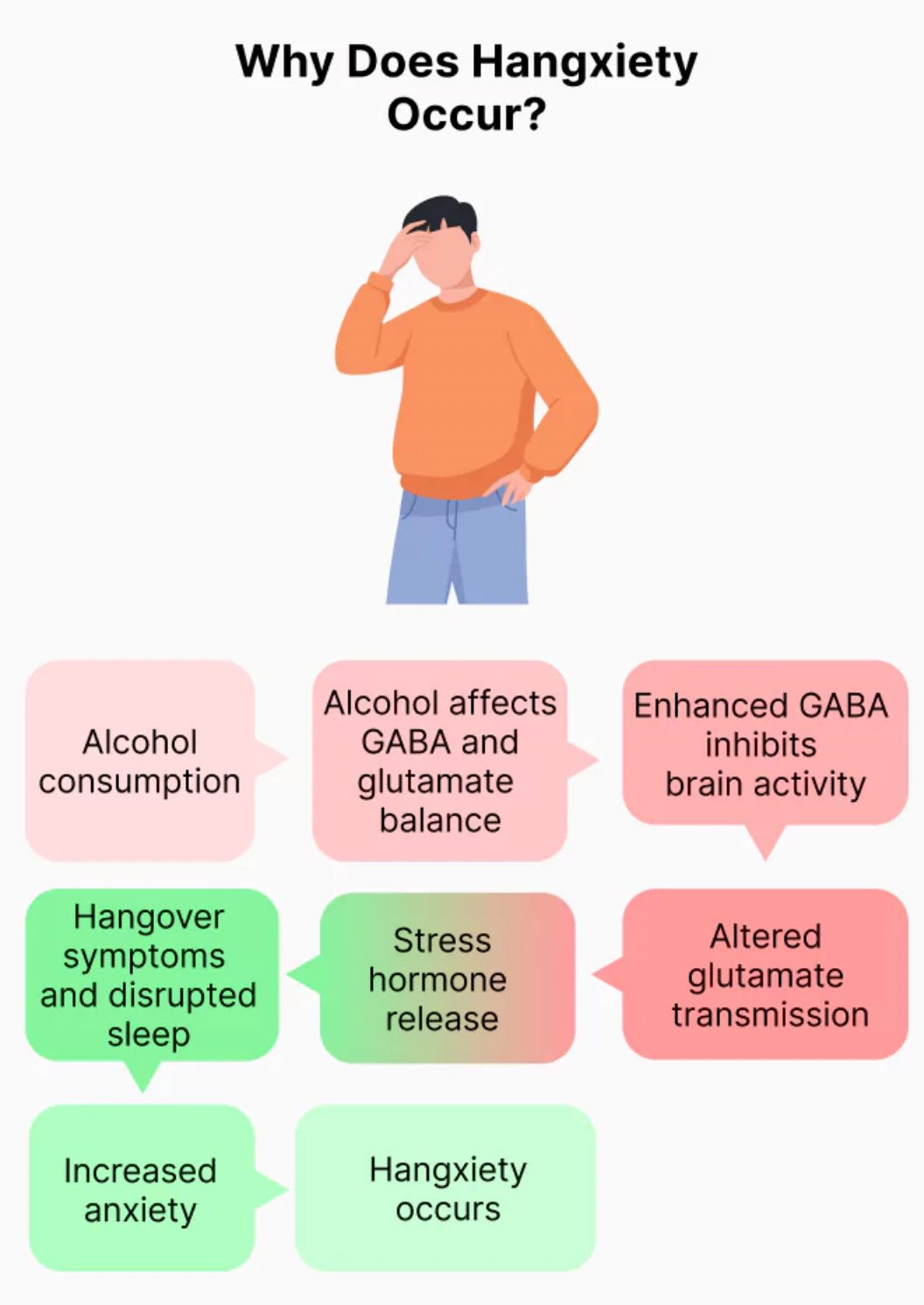
Because it is a depressant, alcohol slows down brain activity and reduces stress. It's true that the alcohol breaks down in your body, but there may be a rebound effect where your brain becomes hyper, which can make you feel the stress you were trying to escape with the drink again.
Dr. Chandni Tugnait's insights on Hangxiety and alcohol's brain effects
Alternative medicine, psychotherapy, and coaching expert Dr. Chandni Tugnait studies how drinking affects the brain and causes hangxiety. She says that alcohol affects chemicals like glutamate and GABA, which makes people feel more anxious after drinking. Initially, booze raises GABA levels, which makes people feel calm and relaxed. Unfortunately, the breakdown of booze lowers GABA levels, which makes anxiety worse. When you drink alcohol, glutamate levels rise, which makes anxiety feelings worse. As a result of problems in the GABA-glutamate system, Dr. Chandni says that heavy drinkers are more likely to experience long-lasting hangxiety, as well as withdrawal symptoms and trouble sleeping. Anxiety and drinking can trigger an addiction loop that is hard to break.
Beyond the Physical: The Emotional Rollercoaster of Hangxiety
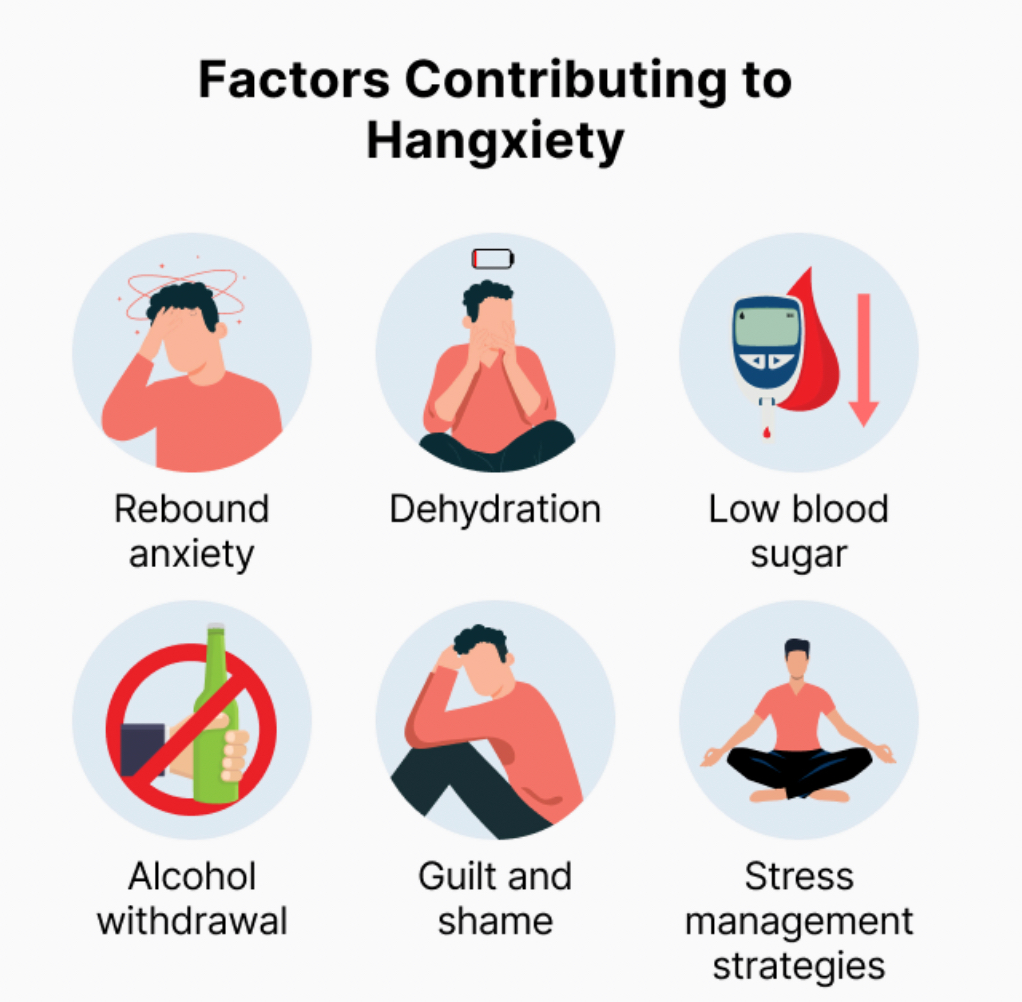
Physical discomfort isn't the only aspect of hangxiety. It frequently has a lot of emotional baggage attached to it. Here's why:
-
Dehydration : Dehydration can make it harder for the brain to work, which could make you feel anxious and uneasy. Due to alcohol's diuretic effect, electrolyte changes can make these feelings even worse.
-
Blood Sugar Fluctuations: Alcohol can mess up your blood sugar levels, causing crashes that can make you feel anxious and have mood swings.
-
Inflammation:A low-grade inflammatory response can happen in the body when you drink alcohol, and some research shows this might be linked to more anxiety.
-
Disrupted Sleep: Alcohol might initially make you drowsy, but it disrupts your sleep quality, leading to fragmented sleep and potentially worsening anxiety.
-
Regret and embarrassment: Memory loss or the constant fear of saying or doing something stupid while drunk can make anxiety and social worries worse.
Stopping yourself from getting anxious is the best thing you can do. Here are some tips for being proactive:
-
Drink in Moderation: The less alcohol you consume, the lower your risk of hangxiety.
-
Hydrate: During the evening, switch between alcoholic drinks and water. Aim to drink even more water before going to sleep and when you wake up.
-
Eat Smart: Food helps slow down alcohol absorption. Opt for healthy snacks or a light meal before and during drinking.
-
Quality Sleep: Aim for a good night's sleep before a night out. Being well-rested makes your body more resilient to the effects of alcohol.
-
Know Your Limits: Listen to your body's cues and stop drinking when you feel tipsy.
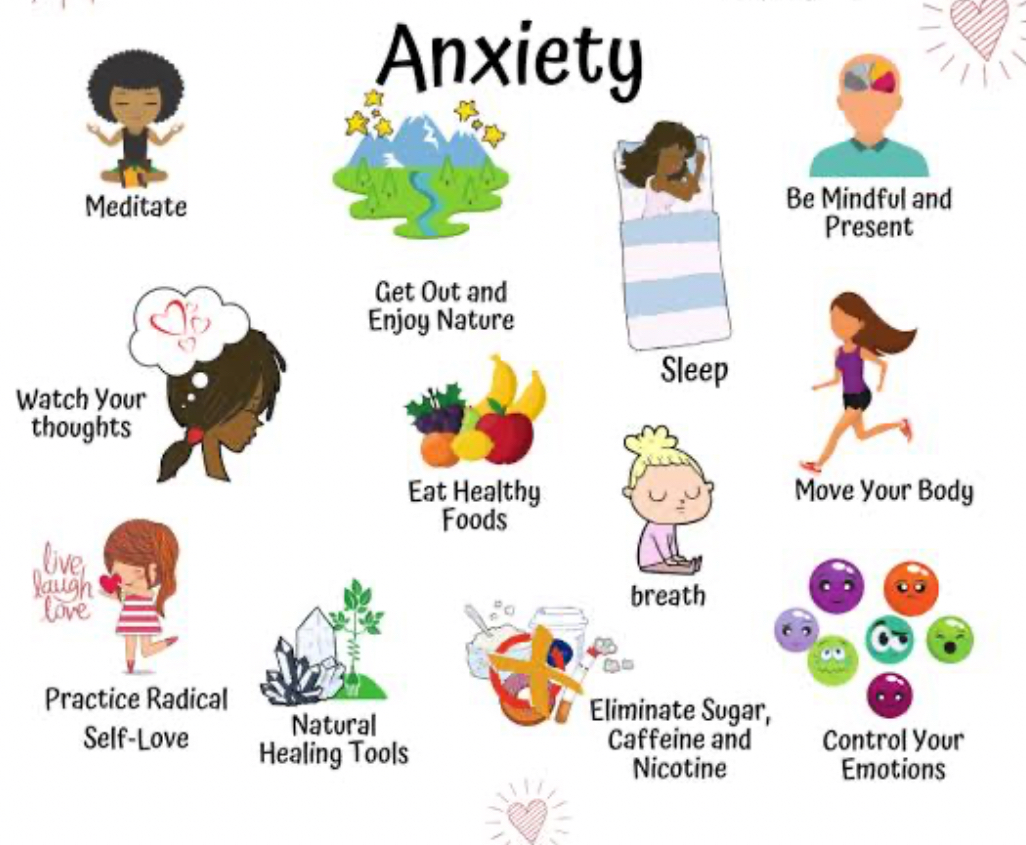
If you do wake up with hangxiety, don't despair. Here are some strategies to find relief:
-
Rehydrate: Replenish lost fluids with water or electrolyte-rich drinks.
-
Gentle Movement: Light exercise like a walk can get your blood pumping and improve your mood.
-
Healthy Eating: Nourish your body with easily digestible foods like fruits, vegetables, and whole grains.
-
Relaxation Techniques: Practice deep breathing or meditation to calm your nervous system.
-
Self-compassion: Don't beat yourself up. Focus on self-care and getting back on track.
When to seek help
It is very important to get professional help if you experience hangxiety often or if it's accompanied by serious anxiety or depression. A doctor or mental health worker can investigate the underlying conditions and suggest treatment plans.
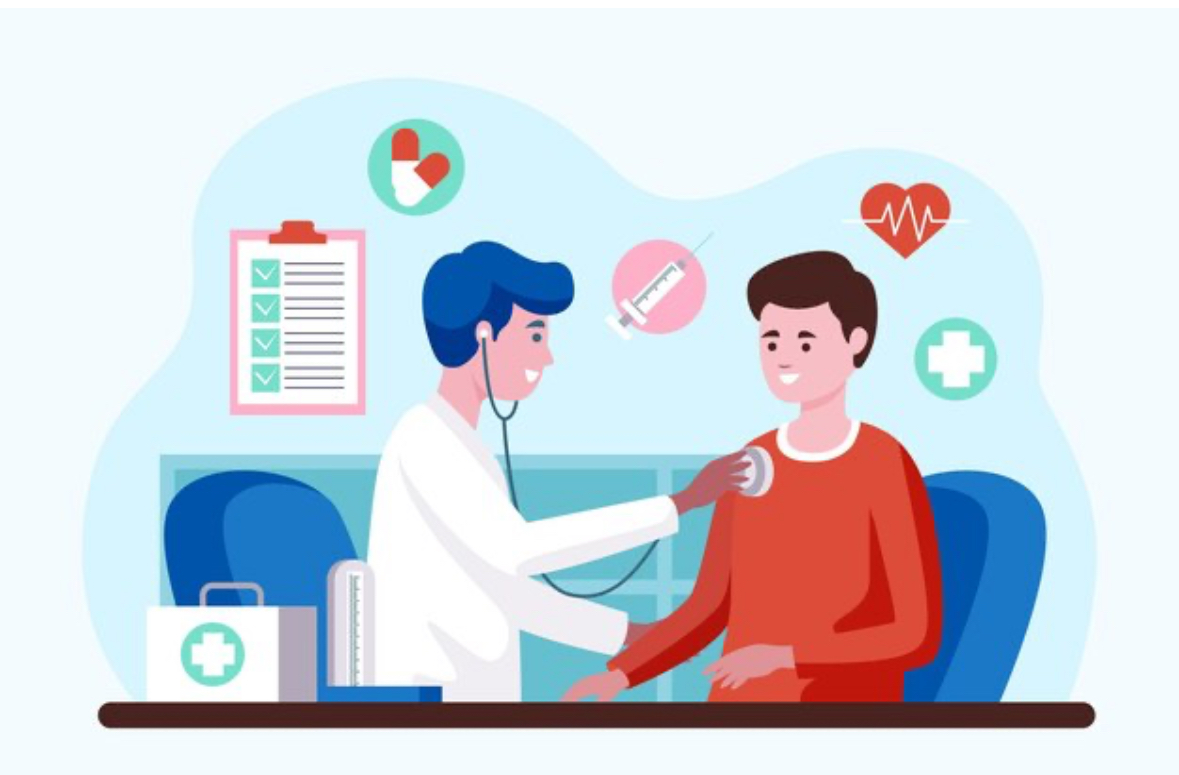
Sometimes people have hangxiety, which is only brief but can be really hard to deal with. Learning to restore your health and happiness is possible by learning about what causes it and using smart tactics. Yes, going out at night shouldn't mean having a terrible day the next day.
Image Source: Multiple Agencies
(Inputs from agencies)
© Copyright 2024. All Rights Reserved Powered by Vygr Media.


















